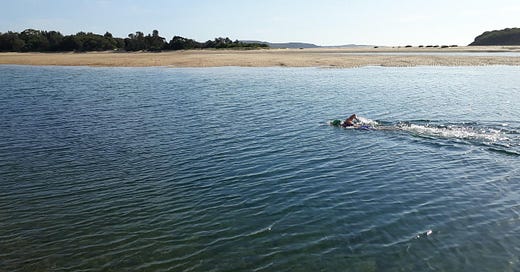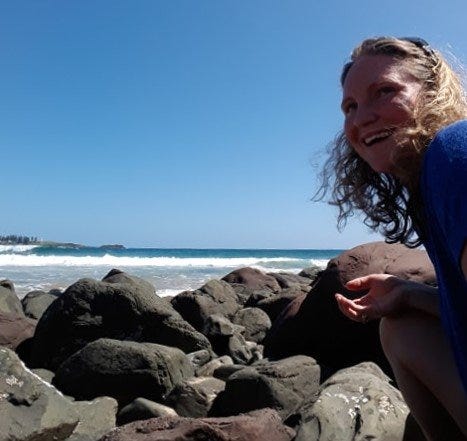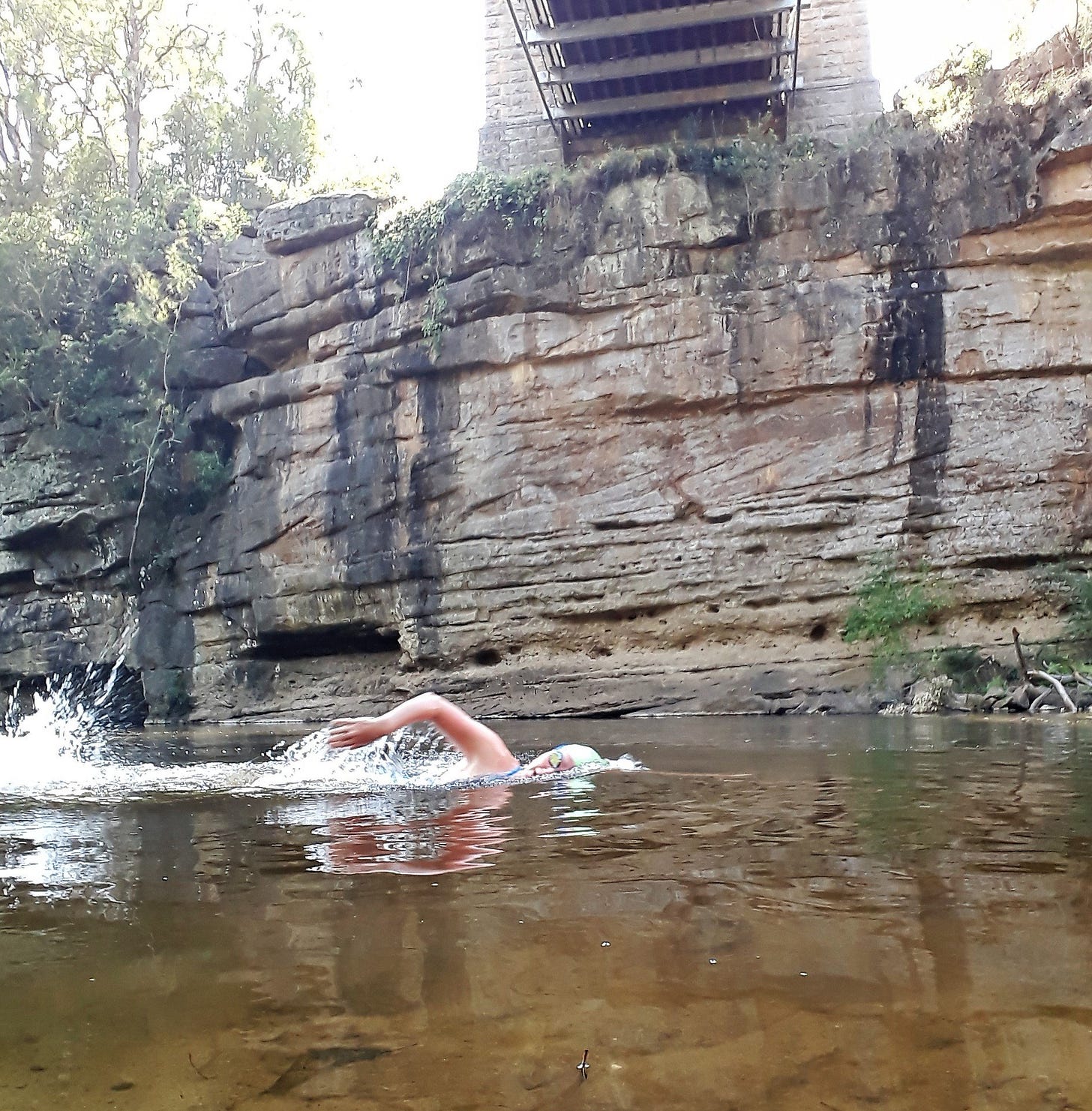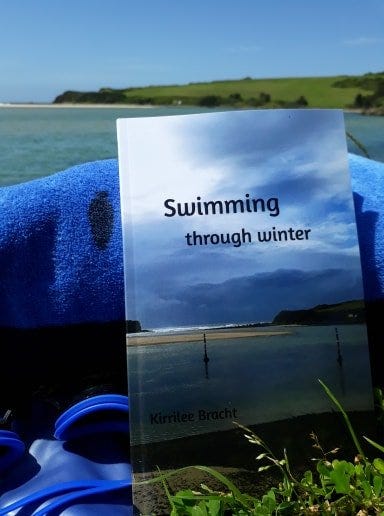Behind 'Swimming Through Winter', written by Kirrilee Bracht
Voyage; a long journey involving travel by sea or space
I recently completed a five month voyage. I travelled by sea. In the sea in fact. The passage took me through the season. For the first time, I swam during the winter months in the ocean on the New South Wales South Coast, in Australia.
The only equipment that I needed I already owned. As a swimmer, I seem to have a limitless amount of swimming caps ranging from the lovely comfortable silicone ones to the rubber ones that you get when you enter open water events. They’re everywhere. In my swimming bag, my car and my bedroom. I almost have the same amount of goggles. Clear ones for the indoor pool and mirrored ones for sunny days in the ocean. I also already owned a wetsuit after competing in the swim leg of a team triathlon in the Australian Snowy Mountains the previous year.
So here I was. Ready. Ready to swim through winter and claim my life back.
I began my trip as a wife and mum who had lost the sense of who I was. I had lost my self worth. I was anxious and often confused. I had lost my ability to make decisions and cope with everyday life. So I swam. I swam in whatever the conditions offered up on the day. In whatever tide. In whatever weather. And as the season changed into spring, my swimming continued as it always will, but my voyage came to an end. I was confident again. I was capable of looking at things in a positive way. I was ready to speak about my experiences in the hope of helping others.
I live in a small country town, 700m above sea level on the edge of an escarpment. But just a thirty five minute drive down the mountain and I am at the most beautiful spot where the river meets the sea. The water can be clean and blue, with an abundance of fish and other sea life. The sky can be clear and the sun shining or on an overcast day in a low tide, the water can be dark and yellow, and the wind can make bothersome bumps in the water causing you to swallow extraordinary amounts of sea water.
I found by swimming throughout the seasons that even on the overcast days the swim is worth the effort. It’s maybe even more satisfying on those days. On the days when people exclaim with profanities that “surely you didn’t swim today?” I can reply with some sort of pride that “yes, I did”.
I found my “crew”, as my six year old daughter calls them, at the river. When I asked if I could join them, they welcomed me immediately. My crew consists only of men. They’ve since retired from paid employment and have been swimming together for years. At first, I spent time hoping that I hadn’t ruined the dynamic of their group, but I was unconditionally accepted, and it didn’t take long for me to feel like one of them.
As the Autumn days got cooler and the water temperature began to drop, I had this goal emerge that I was going to keep on swimming. I wondered if I could do it. Could I keep swimming when the water got painfully cold? I wanted to try. It gave me something to focus on. I looked forward to each swim. I felt better after each swim. Swimming in the winter wasn’t something that everyone else was doing. I liked how people commented about how crazy I was. I liked how capable I felt in the water. I liked how it gave me a break from everything else. During the time I was swimming that’s all I needed to concentrate on. Just swimming. Just breathing.
Life had overwhelmed me and when I had asked for help from a counsellor, what followed was the most harmful experience in my life.
My mental well being was destroyed. I needed to get it back.
The goal of swimming through winter helped. The camaraderie of my fellow swimmers was fundamental. They had no idea of what I was going through but they were there. Every time. Willing to swim with me.
So we continued to swim. We swam on the crystal clear blue sky days. We swam on the days when our lips, fingers and toes were all shades of blue and purple. We saw fish, stingrays, shells and beach worms. We saw birds, lizards and all kinds of animal tracks. My open water skills improved. I began to swim straighter and started to enter competitions again.
I started to write about my swims. It let me re-live them later in the day. I could fill my spare time with writing instead of being absorbed in the emotional turmoil that I had been previously unable to escape. I ended up compiling a short book that intertwines my swims with my memories of my life. It’s titled ‘Swimming through winter’ and it journeys through winter in more ways than one.
Swimming has always been part of who I am. I’ll always be grateful for the relief it provides.
Get a copy of Kirrilee's book and check out her website here.






